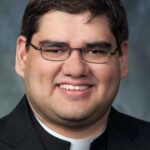Married mom Katie West lives with her teenage son with Asperger’s syndrome at Muscatine Center for Social Action, which provides overnight shelter and transitional housing for persons without a home. Her family was evicted from their home last month after a pipe burst and caused black mold to form. West hopes to get another apartment soon, after she and her husband, an over-the-road truck driver, save up enough money. Ryan Nelson, another MCSA guest, has battled health issues and sought refuge at the shelter because he couldn’t tolerate living in a bug-infested apartment building. He hopes to get a job cleaning office buildings so that he can afford to live on his own. These are three of the faces of ALICE, the name of a United Way national effort to quantify and describe the number of households that struggle financially.
United Way’s ALICE report for 2018 shows that more Iowa households are struggling — based on standardized measurements to calculate the cost of a bare-bones household budget in each county. ALICE (which stands for Asset Limited, Income Constrained, Employed) reports on 16 states, representing about 40 percent of the U.S. population. The report is described as “an alternative measure to the outdated Federal Poverty Level, which grossly underestimates the number of struggling families” (www.unitedwayalice.org/overview).
Statewide, 37 percent of Iowa households struggle to make ends meet. Some counties in the Diocese of Davenport average an even higher percent: Clinton County (38 percent); Scott County (38 percent); Des Moines County (45 percent). Muscatine County averages 37 percent. Among the challenges these families face are affordable housing, prohibitive childcare costs and health care costs. In Clinton County, more than 60 percent of students are eligible for free or reduced school lunches. A large number of people also pay more than 40 percent for their housing costs, says Cheryl McCulloh of United Way of Clinton County.
“It’s often like a domino effect — one problem leads to another and all of a sudden there is no way to climb back into self-sufficiency,” McCulloh said. “Single-parent, female-headed families continue to be the ones that struggle to keep out of poverty. How can you work one or two, often low-paying jobs and be there when your children need you? Or afford extras such as music lessons, sports camps … that will help your children compete in today’s world?”
Blame wage stagnation for the 6 percentage point increase since the last ALICE study two years ago. Wages are not keeping pace with health care and child care costs. In fact, some child care workers in daycare centers represent the face of ALICE, the working poor!
Iowa has one of the lowest rates of eligibility for child care assistance and for reimbursement of daycare providers. A parent earning up to 145 percent over the poverty rate qualifies for child care assistance, but a minuscule pay raise could send families over the “child care cliff,” says United Way of Iowa Executive Director Deann Cook.
The reimbursement rate is being addressed, but not the family eligibility issue. Our Iowa legislators need to know that we want them to increase families’ eligibility for childcare assistance so that they can continue to work, sustain their households and contribute to the economy.
Meanwhile, a recent Housing Market Demand Study for the city of Muscatine found that 43 percent of renters spent more than 30 percent of their household’s annual income on rent plus utilities because of a shortage of affordable rental units. The U.S. Department of Housing and Urban Development (HUD) sets 30 percent as a bench mark. Families that pay more than 30 percent of their income on housing “may have difficulty affording necessities such as food, clothing, transportation and medical care,” HUD says. Lack of affordable housing was higher in Ottumwa, at 49 percent for renters; Clinton, 47 percent; Bettendorf, 45 percent; Davenport, 44 percent; and Washington, 43 percent. The statewide average was 43 percent.
Lack of affordable housing impacts all aspects of a family’s life – from success in school, the workplace and the community at large to physical and mental well-being. The U.S. Conference of Catholic Bishops advocates for a living wage and for health care as a basic human right. Here are some suggestions to put words into action:
• Support the annual Diocesan Works of Charity. This year’s collection in parishes is July 21-22. Funds provide emergency assistance for people in a crisis.
• Support United Way (www.uwiowa.org/local-united-ways), which funds partner agencies to assist families and individuals struggling with poverty.
• Serve as a volunteer, a mentor, raise funds or serve on a board. MCSA welcomes your assistance. Visit the website mcsa@mcsaiowa.org or call (563) 264-3278. Volunteers skilled in the building trades can contact Rebuilding Together Quad Cities at rebuilding@rtqc.org or call the office (563) 322-6534.
• Encourage collaboration among groups in your community, including ecumenical efforts.
• Share what your parish is doing to address poverty — and the challenges yet to be addressed — with the Diocese of Davenport’s Social Action Office (ferris@davenportdiocese.org) and with elected officials in Iowa and in Washington, D.C.• Advocate for affordable housing, childcare assistance and a living wage at the state and national level.
In keeping with Pope Francis’ desire for encounter with persons on the peripheries, let’s get to know the ALICEs in our midst.
Barb Arland-Fye, Editor
(arland-fye@davenportdiocese.org)











